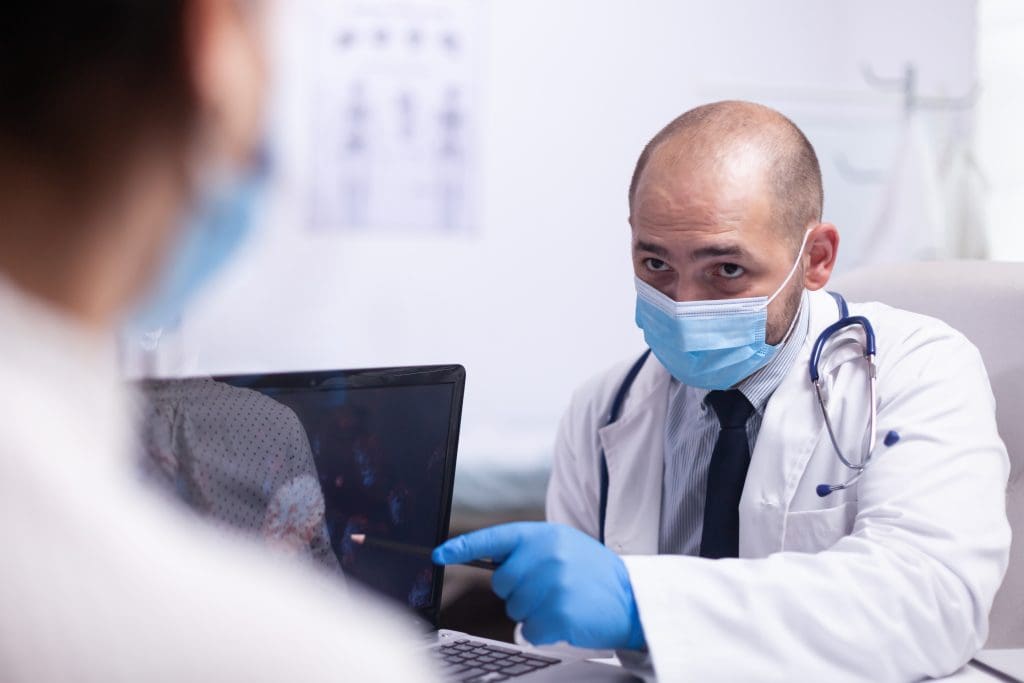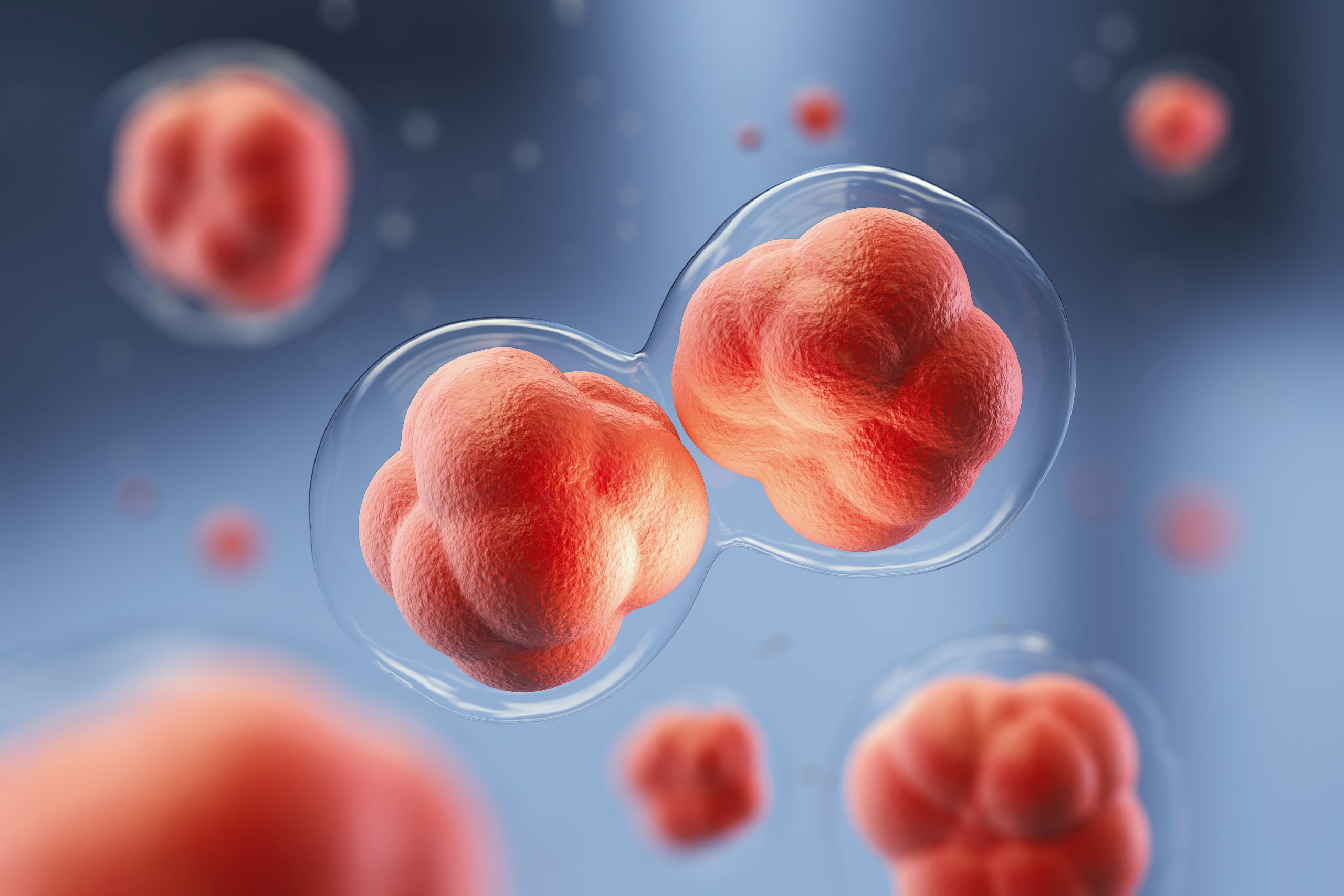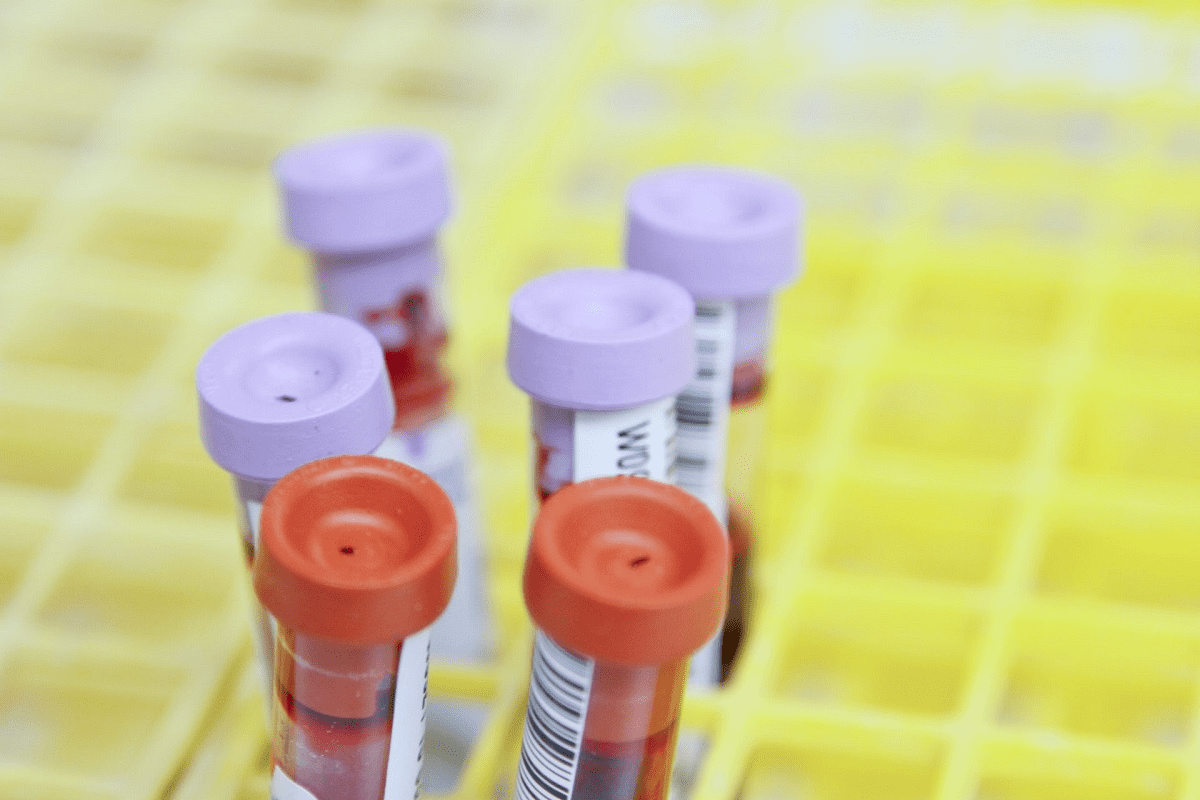Last Updated on November 26, 2025 by Bilal Hasdemir
Nearly 1 in 23 men and 1 in 25 women will get colon cancer in their lifetime, says the American Cancer Society. This shows how vital it is to know the symptoms of this disease. Many of us wonder if we’ll “feel ill” if we have colon cancer. The symptoms can be mild and might seem like other common issues. It’s key to know the signs that could mean something serious.
We’ll guide you through how colon cancer can impact your health and what to watch for.
Key Takeaways
- Common symptoms associated with colon cancer
- The importance of early detection
- How colon cancer can affect overall health
- Steps to take if you’re experiencing symptoms
- Understanding the risk factors
Understanding Colon Cancer: An Overview
Colon cancer is a big health issue. It’s important for doctors and the public to know about it. Knowing the basics helps prevent and catch it early.
What is Colon Cancer?
Colon cancer, also known as colorectal cancer, is when cells grow abnormally in the colon or rectum. It often starts as a polyp, a growth on the colon or rectum’s lining. Not all polyps turn into cancer, but some types, like adenomatous polyps, can if not removed.
Colon cancer develops from genetic changes and environmental factors. Early detection is key because it often has no symptoms in its early stages. Screening tests are crucial for catching it before symptoms show.
How Common is Colon Cancer in the United States?
Colon cancer is a common cancer in the U.S. Tens of thousands get it every year. The American Cancer Society says it’s the third leading cause of cancer deaths in both men and women.
- Colon cancer affects both men and women, with risk increasing with age.
- The majority of cases are diagnosed in individuals over the age of 50.
- Early detection through screening has been shown to reduce the incidence and mortality of colon cancer.
Risk Factors for Developing Colon Cancer
Several factors increase the chance of getting colon cancer. These include:
- Age: The risk of colon cancer increases significantly after the age of 50.
- Family History: People with a family history of colon cancer or certain genetic syndromes are at higher risk.
- Diet and Lifestyle: A diet high in red and processed meats, low in fiber, and lacking in physical activity may contribute to an increased risk.
- Personal Medical History: Previous diagnoses of colon cancer, polyps, or other conditions like inflammatory bowel disease can increase risk.
Knowing these risk factors helps assess personal risk. It guides decisions on screening and preventive measures.
Early vs. Advanced Colon Cancer: Symptom Progression
It’s important to know how colon cancer symptoms change over time. This knowledge helps in catching the disease early and treating it better. Colon cancer goes through stages, and its symptoms can change a lot as it grows.

Symptom Development Timeline
The time it takes for colon cancer symptoms to show up can differ a lot. Colon cancer usually grows slowly, over years. In the early stages, it might not cause any noticeable symptoms, making regular check-ups key for catching it early.
As the cancer grows, symptoms start to show up. These can include changes in bowel habits like diarrhea or constipation, and blood in the stool. How fast these symptoms appear can vary, but they usually get worse as the cancer gets more advanced.
Why Early-Stage Colon Cancer Often Goes Unnoticed
Early-stage colon cancer often doesn’t show symptoms because it doesn’t cause big problems. It usually starts as a polyp, a growth on the inner lining of the colon or rectum. This polyp can be benign or precancerous. The cancer might not cause symptoms right away.
Several things make early symptoms hard to notice. The tumor grows slowly, and it starts in a part of the colon that doesn’t cause symptoms right away. Regular screenings are key to catching colon cancer early when it’s easier to treat.
When Symptoms Typically Begin to Appear
Symptoms of colon cancer usually start to show up in later stages. As the tumor gets bigger, it can cause changes in bowel habits, abdominal pain, and rectal bleeding.
The following table shows how colon cancer symptoms can progress:
| Stage | Common Symptoms |
| Early Stage | Often asymptomatic, occasional minor changes in bowel habits |
| Intermediate Stage | Changes in bowel habits (diarrhea or constipation), abdominal discomfort |
| Advanced Stage | Rectal bleeding, significant abdominal pain, unexplained weight loss, fatigue |
Knowing how colon cancer symptoms progress is crucial for both patients and doctors. Spotting symptoms early can lead to quicker diagnosis and better treatment.
Colon Cancer Symptoms: What to Watch For
Knowing the symptoms of colon cancer is key to catching it early. Colon cancer can show up in many ways. Spotting these signs early can greatly improve treatment outcomes.
Digestive and Bowel-Related Symptoms
Colon cancer often messes with the digestive system. This can lead to changes in bowel habits and stomach pain. Some common signs include:
- Changes in bowel movements, such as diarrhea or constipation
- Blood in the stool or black, tarry stools
- Abdominal pain or cramping
- Bloating and gas
- Narrow or pencil-thin stools
These symptoms might mean colon cancer, especially if they get worse. Seeing a doctor is important if you notice any of these.
Systemic Symptoms Affecting the Whole Body
Colon cancer can also cause body-wide symptoms. These might include:
- Fatigue or weakness
- Unexplained weight loss
- Loss of appetite
- Nausea and vomiting
A top oncologist, says, “Systemic symptoms like fatigue and weight loss can mean advanced colon cancer. Catching it early is crucial to stop it from spreading.”
“Systemic symptoms often mean colon cancer is more advanced. This shows how vital early screening and detection are.”
A Colon Cancer Specialist
Less Common but Important Warning Signs
Some symptoms of colon cancer are less common but still important. These include:
| Symptom | Description |
| Anemia | Low red blood cell count, often causing fatigue |
| Abdominal tenderness | Tenderness to the touch in the abdominal area |
| Mass or lump | A palpable mass in the abdomen, though this is rare |
Knowing about these symptoms can help catch colon cancer early. If you notice anything unusual or persistent, see a doctor right away.
Changes in Bowel Habits as Warning Signs
Colon cancer often shows up through changes in bowel habits. These changes can be ongoing or come and go. They can really affect how well you feel every day.
Persistent Diarrhea and Colon Cancer
Diarrhea that doesn’t go away can be a sign of colon cancer. The tumor can mess with how the bowel absorbs water and salts. This leads to stools that are always loose. If you have diarrhea for more than a few days, see a doctor.
Key characteristics of diarrhea related to colon cancer include:
- Persistent or recurring nature
- Presence of blood or mucus in the stool
- Accompanied by abdominal pain or cramping
Constipation as a Potential Symptom
Constipation, or trouble passing stools, can also point to colon cancer. Tumors can make the colon narrower, blocking stool. If you’re constipated and also have belly pain or unexplained weight loss, get checked by a doctor.
| Symptom | Description | Potential Concern |
| Constipation | Difficulty passing stools or infrequent bowel movements | Colon obstruction due to tumor |
| Diarrhea | Frequent loose or watery stools | Tumor affecting water and electrolyte absorption |
| Narrow Stools | Stools that are significantly narrower than usual | Partial obstruction of the colon |
Alternating Diarrhea and Constipation
Some people might have diarrhea and constipation back and forth. This is a sign that the bowel is trying to work around a tumor. It’s a warning sign that should not be ignored.
“Changes in bowel habits, including alternating diarrhea and constipation, should not be ignored. Early detection of colon cancer significantly improves treatment outcomes.”
” A Gastroenterologist
Narrow Stools and Their Significance
Narrow stools, or pencil-thin stools, can mean there’s a blockage in the colon. A tumor can make the passage for stool narrower. If your stools are always narrower than usual, talk to your doctor.
Knowing about bowel habit changes can help spot colon cancer early. By understanding these signs, we can catch it sooner and improve health outcomes.
Blood in Stool:
Blood in stool is a serious sign that needs attention. It can show up in different ways and mean different things. It could be something simple or something serious.
Different Types of Rectal Bleeding
Rectal bleeding can look different. It might be visible as bright red blood, or it could be occult, hidden and found only in lab tests.
Visible bleeding can be from many things like hemorrhoids or even colon cancer. The color and how thick the blood is can tell you where it’s coming from. Bright red blood usually means it’s closer to the anus. Darker blood might mean it’s coming from higher up.
Visible vs. Occult Blood
Knowing if blood is visible or occult is important. Visible blood is scary and needs quick action. Occult blood might not be seen and is often found in tests for colon cancer.
Occult bleeding can be a sign of early colon cancer. It’s found in tests like fecal occult blood tests (FOBT) for colon cancer screening.
Other Conditions That Cause Rectal Bleeding
Colon cancer is a worry, but bleeding can also mean other things. These include:
- Hemorrhoids
- Anal fissures
- Inflammatory bowel disease (IBD)
- Diverticulosis
- Gastrointestinal infections
Each of these has its own symptoms and treatments. Seeing a doctor is key to figuring out why you’re bleeding.
When Blood in Stool Requires Immediate Medical Attention
Not all bleeding needs urgent care, but some situations do. These include:
- Heavy bleeding that doesn’t stop
- Bleeding with severe abdominal pain
- Bleeding with dizziness or fainting
- Visible blood clots
If you have these symptoms, get medical help right away. Quick action can make a big difference, especially if it’s something serious like colon cancer.
Abdominal Discomfort and Pain Patterns
Understanding abdominal discomfort and pain patterns is key to spotting colon cancer symptoms. Many people with colon cancer complain of abdominal pain. The type of pain can vary a lot.
Characteristics of Colon Cancer-Related Pain
Pain from colon cancer can feel different. It might be a dull ache, a sharp stab, or cramping. The pain can stay the same or get worse as the tumor grows.
Pain Characteristics:
- Dull and persistent
- Sharp and stabbing
- Cramping
- Intermittent or constant
Location and Intensity Variations
The pain’s location and how strong it is can hint at the tumor’s size and where it is. Usually, the pain is in the lower abdomen. But it can be anywhere in the belly.
| Tumor Location | Typical Pain Location | Intensity Variation |
| Right Colon | Right lower abdomen | Mild to severe |
| Left Colon | Left lower abdomen | Moderate to severe |
| Rectum | Pelvic region | Sharp, stabbing |
Distinguishing from Other Digestive Conditions
It’s hard to tell if pain is from colon cancer or another digestive issue. But, some clues can help. Colon cancer pain usually gets worse over time. Pain from other issues might come and go or be linked to eating.
Key distinguishing factors include:
- Persistence and progression of pain
- Association with other symptoms like weight loss or changes in bowel habits
- Intensity and characteristics of the pain
Fatigue, Weakness, and General Malaise in Colon Cancer
Colon cancer can make you feel extremely tired. This tiredness is not just feeling a bit worn out. It’s a deep, lasting tiredness that makes everyday tasks hard.
Why Cancer Causes Fatigue
Cancer fatigue comes from many sources. The disease itself can make you tired through proteins called cytokines. The body’s fight against cancer also adds to the tiredness.
Cancer-related fatigue can be caused by:
- Cytokine production
- Immune system response
- Anemia
- Nutritional deficiencies
- Hormonal changes
Anemia-Related Weakness and Tiredness
Anemia is common in colon cancer, especially if the tumor bleeds. It happens when there are fewer red blood cells or less hemoglobin. This makes it hard for the body to get oxygen, leading to weakness, tiredness, and shortness of breath.
| Symptoms of Anemia | Description |
| Weakness | Feeling of lack of strength or energy |
| Tiredness | Persistent feeling of exhaustion |
| Shortness of Breath | Difficulty breathing or feeling winded even at rest |
Distinguishing Cancer Fatigue from Normal Tiredness
Everyone gets tired sometimes, but cancer fatigue is different. It’s not just feeling tired; it’s a deep, lasting tiredness. It’s not helped by rest or sleep.
Knowing why and how colon cancer causes fatigue is key to managing it. By understanding the difference between normal tiredness and cancer fatigue, patients and doctors can find ways to lessen its impact on daily life.
Weight Loss and Appetite Changes
Unexplained weight loss and changes in appetite are signs of colon cancer. These symptoms show how the body reacts to cancer. They might mean you need to see a doctor.
Unexplained Weight Loss as a Cancer Warning Sign
Weight loss without trying is a big warning sign, especially for colon cancer. Losing weight without trying means your body might not be getting the nutrients it needs. Or, the cancer could be messing with your metabolism.
“Unexplained weight loss is a common symptom in many cancers, including colon cancer,” says a leading oncologist. “It’s crucial for patients to be aware of this potential warning sign and seek medical advice if they experience it.”
Loss of Appetite: Causes and Significance
Loss of appetite is another symptom linked to colon cancer. It can happen for many reasons, like nausea, changes in taste, or feeling full too soon. When cancer is present, the body might need more energy, leading to less hunger.
The importance of loss of appetite is that it can cause malnutrition. This weakens the body even more. It’s key for patients to talk about any appetite changes with their doctor.
Metabolic Changes in Cancer Patients
Cancer can change how the body uses energy and nutrients. In colon cancer, these changes can cause weight loss and changes in appetite. Understanding these changes is important for managing symptoms and improving life quality.
As we delve deeper into colon cancer, it’s clear that symptoms like weight loss and appetite changes are more than just side effects. They are closely tied to the disease’s growth and how the body responds to it.
How Symptoms May Vary in Different Populations
It’s important to know how colon cancer symptoms change in different groups. Colon cancer doesn’t show up the same way in everyone. Things like age, gender, family history, and being at high risk can change how symptoms appear.
Age-Related Differences in Symptom Presentation
Colon cancer symptoms change with age. Young people might have more severe symptoms, while older folks might have symptoms that could mean other things. Knowing these age differences is key to catching the disease early. Younger people might not get screened as often, which can delay finding out they have it.
Gender Variations in Colon Cancer Symptoms
Studies show that men and women have different symptoms. Women might feel tired or have anemia, while men might notice changes in their bowel habits. Knowing these differences helps doctors tailor treatments better.
Family History and Symptom Awareness
Having a family history of colon cancer makes people more aware of symptoms. They might get screened sooner. Doctors should ask about family history to figure out the right screening plan.
High-Risk Groups and Symptom Vigilance
Some groups are at higher risk for colon cancer. This includes people with certain diseases or genetic conditions. They need to watch for symptoms closely and get screened more often. Knowing you’re at higher risk can help catch the disease early.
By understanding how symptoms vary, we can catch colon cancer sooner. It’s important for doctors and everyone to know these differences. This way, we can make sure everyone gets the right care.
Screening and Prevention Recommendations
Screening for colon cancer is key to early detection and prevention. It helps find and remove polyps before they turn into cancer. This way, colon cancer can be prevented.
Current Screening Guidelines for Average-Risk Adults
For those at average risk of colon cancer, guidelines exist. Screening should start at age 45 and go until at least 75. The screening frequency varies based on the test type and individual risk.
Some guidelines are:
- Annual fecal immunochemical test (FIT) or fecal occult blood test (FOBT)
- Every 10 years for colonoscopy
- Every 5 years for CT colonography or double-contrast barium enema
Screening Options and Procedures
There are many screening options for colon cancer. Each has its own benefits and drawbacks. These include:
- Colonoscopy: The top choice, it lets doctors see and remove polyps.
- Fecal Immunochemical Test (FIT): A simple test that finds blood in the stool.
- CT Colonography: Uses X-rays to see the colon.
- Stool DNA Tests: Finds DNA changes in the stool that might mean cancer.
The right test depends on many things, like what the patient prefers and their risk factors.
Lifestyle Changes That May Reduce Risk
Along with screening, some lifestyle changes can lower colon cancer risk. These include:
- Increasing physical activity: Exercise is linked to lower risk.
- Maintaining a healthy weight: Being overweight increases risk.
- Eating a balanced diet: Eat lots of fruits, veggies, and whole grains.
- Limiting red and processed meats: Eating too much of these increases risk.
- Avoiding smoking and limiting alcohol: Both are cancer risks, including colon cancer.
When to Start Screening Earlier
People with a family history of colon cancer, certain genetic syndromes, or inflammatory bowel disease should screen earlier and more often. It’s crucial for them to talk to their doctor about the best screening plan.
By following screening guidelines and making healthy lifestyle choices, people can greatly lower their colon cancer risk.
When to See a Doctor: Red Flags and Warning Signs
Knowing the warning signs of colon cancer is key. Spotting these signs early can greatly impact your health. It can lead to better diagnosis and treatment.
Symptoms That Require Immediate Medical Attention
Certain symptoms need quick medical check-ups. These include:
- Rectal bleeding or blood in your stool, which can be a sign of a tumor or polyp in the colon.
- Significant changes in bowel habits, such as persistent diarrhea or constipation, which could indicate a blockage or other issue.
- Severe abdominal pain that doesn’t subside, as it could be a sign of advanced disease.
- Unexplained weight loss, which is often associated with cancer due to the body’s increased metabolic rate.
- Fatigue that is not relieved by rest, potentially indicating anemia or other complications.
If you’re experiencing any of these symptoms, it’s crucial to seek medical attention promptly.
Preparing for Your Doctor’s Appointment
Before your doctor’s visit, prepare by:
- Writing down your symptoms, including when they started and how long they’ve lasted.
- Listing any medications you’re currently taking.
- Noting any family history of colon cancer or other relevant medical conditions.
- Preparing a list of questions to ask your doctor about your symptoms and potential diagnosis.
This preparation can help ensure a productive discussion during your appointment.
Questions Your Doctor May Ask About Your Symptoms
Your doctor will likely ask several questions to understand your symptoms better, such as:
- Can you describe your symptoms in detail?
- When did you first notice these symptoms?
- Have you experienced any changes in your bowel habits or appetite?
- Have you noticed any blood in your stool or experienced rectal bleeding?
Being honest and thorough in your responses can help your doctor make an accurate diagnosis.
What to Expect During Initial Evaluation
During your initial evaluation, your doctor may perform a physical exam, take a detailed medical history, and possibly order diagnostic tests such as a colonoscopy or imaging studies. Understanding what to expect can help reduce anxiety and make the process smoother.
Early detection and treatment of colon cancer significantly improve outcomes, making it essential to be proactive about your health.
Conclusion:
Knowing the signs of colon cancer is key to catching it early. This article has covered the different symptoms, like changes in bowel habits and stomach pain. We also talked about feeling tired and losing weight. Being aware of these signs helps people get medical help when needed. Regular check-ups and a healthy lifestyle can also help prevent or catch colon cancer early. By spreading the word about health and encouraging action, we can lower colon cancer risks. If you notice any symptoms that concern you, see a doctor right away.
FAQ
What are the common symptoms of colon cancer?
Symptoms include changes in bowel habits and blood in stool. You might also feel abdominal discomfort, fatigue, and weakness. Unexplained weight loss and loss of appetite are also signs.
How does colon cancer affect bowel habits?
It can cause diarrhea, constipation, or both. You might also notice narrow stools.
What does blood in stool mean?
Blood in stool could mean colon cancer, but it’s not the only cause. It can also come from hemorrhoids or anal fissures. Visible blood is easy to spot, but hidden blood needs a test to find.
How does colon cancer cause abdominal pain?
It can lead to discomfort and pain in the abdomen. The pain’s location and intensity can vary. It might be constant or come and go.
Why do colon cancer patients experience fatigue?
Fatigue is due to the body working harder, anemia, and metabolic changes. These factors drain your energy.
What is the significance of unexplained weight loss in colon cancer?
Unexplained weight loss is a warning sign. Cancer can change your metabolism and reduce your appetite.
Are there any lifestyle changes that can reduce the risk of colon cancer?
Yes, eating well, exercising, not smoking, and drinking less alcohol can help. These habits lower your risk.
When should I start screening for colon cancer?
Start screening at 45 if you’re at average risk. Those with a family history or other risk factors might need to start earlier.
What are the available screening options for colon cancer?
You can choose from colonoscopy, fecal occult blood tests, stool DNA tests, and CT colonography. Each has its own benefits and requirements.
What are the red flags that require immediate medical attention?
Severe abdominal pain, vomiting blood, or passing black tarry stools are urgent signs. You should seek medical help right away.
How can I prepare for my doctor’s appointment regarding colon cancer symptoms?
Write down your symptoms, when they started, and any changes. Be ready to talk about your medical history and risk factors.






